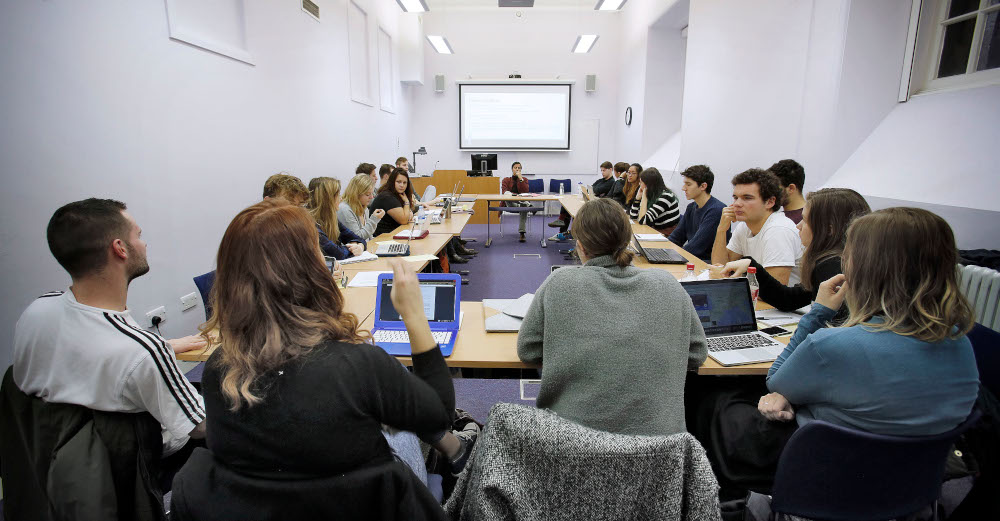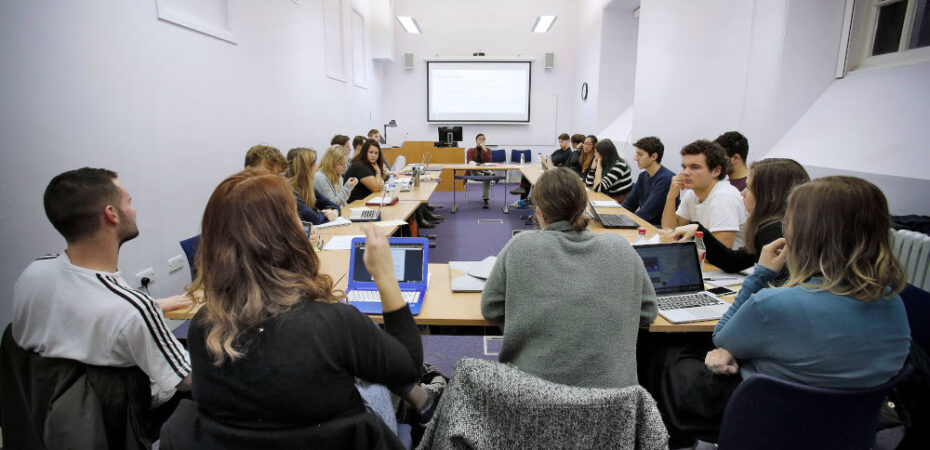
In this extra post, Rebecca Shade and Victoria Buchanan highlight how the Disability and Learning Support Service can support individual student needs and create an accessible and inclusive student experience for all.
You may have heard of the Disability and Learning Support Service (DLSS) in Higher Education institutions, but are you aware of the full spectrum of work they carry out? The service has to be aware of the impacts of a multitude of health conditions and disabilities, university regulations, teaching methods, and legal responsibilities as well as being available to support students throughout the teaching week.
Understanding how students are taught is crucial to us because we need to appreciate what students are being asked to do in order to understand what adjustments an individual disabled student may need. This can be challenging across such a diverse curriculum with wide ranging teaching and assessment methods. To help coordinate and implement the support, the University refers to its Accessible and Inclusive Learning Policy (AILP),
Accessible and Inclusive Learning Policy
You may be aware that the university has a longstanding Accessible and Inclusive Learning Policy (AILP), first published in 2013. The principles underpinning this policy align with broader inclusive teaching practices. For example, the 8 Baseline Standards within the AILP are the minimum accessibility standards that all students should expect to receive. These standards obviously benefit disabled students but also support all learners to manage their learning more effectively, improving the student experience for all.
The AILP standards cover every aspect of teaching, learning and assessment across all mediums including field trips, study abroad, online and research. Here’s a brief summary of the baseline standards that benefit all learners:
- Course outlines and reading lists to be made available at least four weeks before the start of a course.
- Reading lists should indicate priority and/or relevance.
- Lecture outlines or slides to be made available 24 hours in advance of the class.
- Key technical words, terms or formulae to be made available 24 hours in advance of the class.
- Students to be notified by email of changes to any teaching arrangements.
- A student shall be permitted to make audio recording of their lectures, tutorials and supervision sessions using their own equipment for the sole purpose of their own personal learning.
- All teaching staff shall ensure that microphones are worn and used in all lectures regardless of the perceived need to wear them (watch out for a forthcoming campaign on this soon from Estates, IS and DLSS!).
- Teaching staff and examiners shall ensure their materials such as slides, lecture outlines, examinations and other electronic documents are accessible.
Good practice together
At DLSS, we are not just here to support students. We work collaboratively with Schools all over the institution to make sure they feel confident to enact change in teaching and try new opportunities to mainstream (or be ‘inclusive’).
Our Director and Assistant Directors work alongside Disability Advisors to provide guidance on inclusive ways of assessing and teaching in practice. This year, we’ve seen extensions to group work mainstreamed in a School so students do not have to declare a disability. Alternative assessments to group work are now offered in some areas as standard and we’ve also seen mainstreamed extra time on class tests.
Colleagues may be aware of the recent legal case relating to a disabled student at University of Bristol. Colleagues in DLSS and Institute for Academic Development have been co-leading on work with staff across the University to understand the implications and develop training resources for staff. We’ll be disseminating information on this later in semester one.
Training resources
We’d like to see even more teaching and support staff attending our training and awareness sessions which are run all year round. You can choose from a specific condition that interests you (for example, some cohorts or programmes may see a higher number of neurodivergent students) or general awareness and oversight. All of these sessions are online so that staff can join from wherever they are on campus. The only in-person session is the ‘Visual Impairments’ session so that colleagues can take part in some practical experiences together.
We run online, tailored mental health support awareness with our colleagues from Student Counselling, and staff report feeling a much-improved confidence in speaking to students after attending this session. These sessions are scheduled throughout the year. Participants have fed back that the training is a lot more specific about how to deal with students in real-life situations and therefore very relevant to staff: ‘A worthwhile and necessary two-hour session for anyone who deals with students’.
All of the above can be booked through MyEd/Staff Resources/Training and Event Booking/ /Disability & Learning Support Service.
New to this academic year are our ‘Lunch & Learn’ sessions, available on our soon-to-be launched SharePoint. These are 15-minute, bite-size introduction videos to topics we work with every day. Take a look, and if you want to find out more, book onto a longer training session or contact us: Disability.Service@ed.ac.uk.
Conclusion
Being disabled, neurodivergent, blind (other conditions are available) is not a barrier to academic success and a positive student experience. Together, staff and students can create a learning environment for all that is accessible and allows students to thrive.
The DLSS service is always looking for feedback and suggestions, so if you feel there is a topic missing, or you would like a bespoke session for your area then get in touch. We’d love to hear from you: Disability.Service@ed.ac.uk.
Rebecca Shade
Rebecca is Assistant Director, Development & Inclusion at the Disability & Learning Support Service and oversees the service’s training programmes. She has worked in various student experience roles for 19 years at the University.
Victoria Buchanan
Victoria Buchanan is the Director of the Disability and Learning Support Service. She holds a Masters degree in Education Inclusive Practice and has 20 years’ experience in student support, 11 of which have been in middle to senior management roles. Victoria is Co-Convenor of the University EDI Disability and Inclusion Sub-Group and a co-opted member of APRC. Victoria is Policy Officer for the AILP, alongside Professor Tina Harrison.


